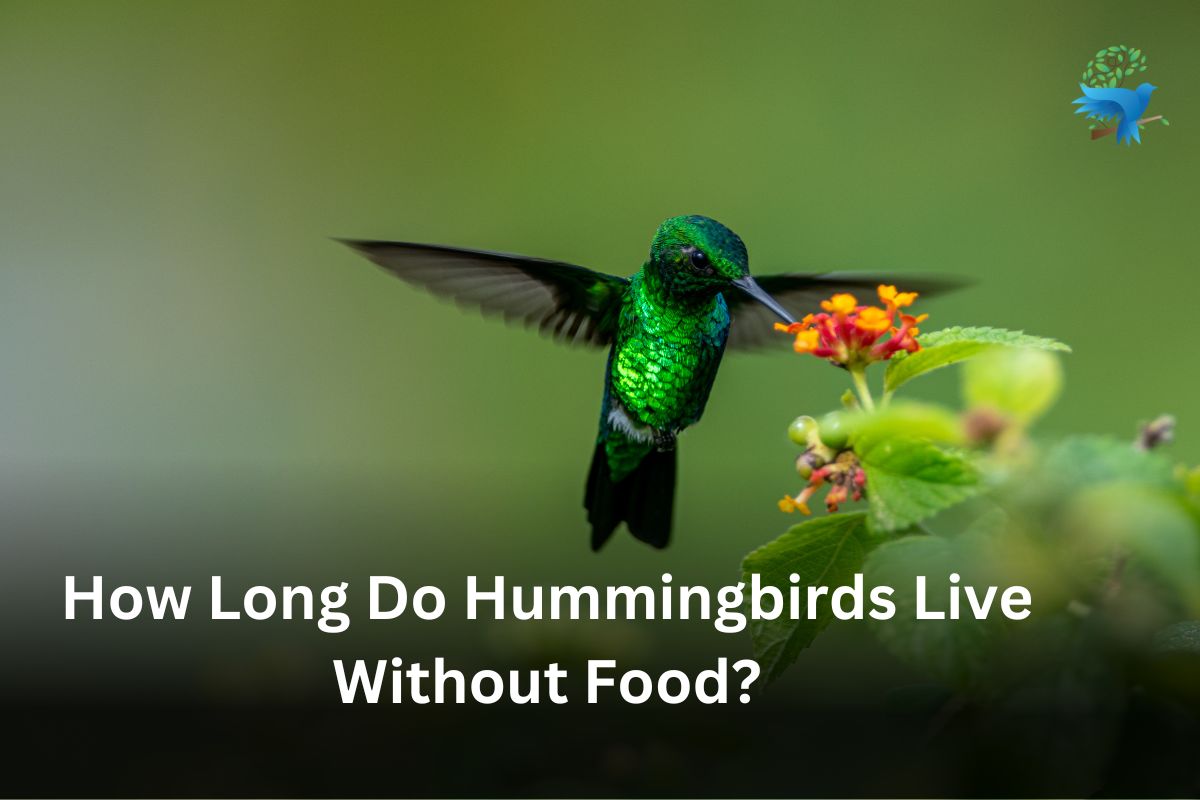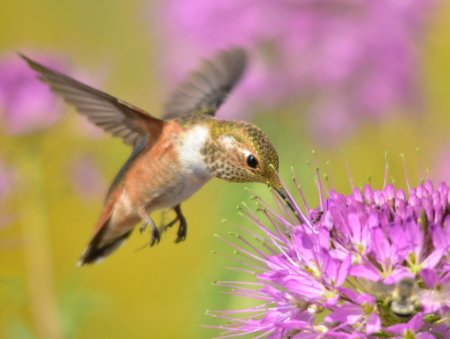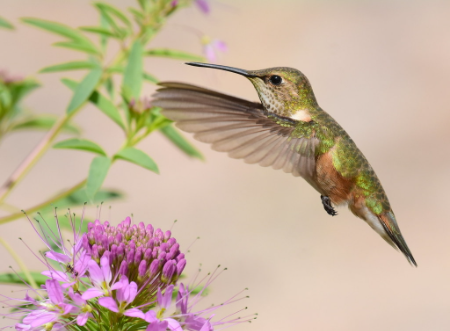How Long Do Hummingbirds Live Without Food?

Hummingbirds are fascinating creatures known for their vibrant colors, incredible speed, and unique ability to hover in mid-air. But have you ever wondered how long these tiny birds can survive without food? In this article, we’ll explore just that and learn more about the eating habits of hummingbirds.

Source: USFWS Mountain-Prairi ( flickr)
How long do hummingbirds live?
The lifespan of a hummingbird will vary depending on factors such as species and habitat. On average, hummingbirds typically live between 3 and 5 years. However, some species may only live for 2 years while others can reach up to 10 years or more.
How long can hummingbirds go without food or water?
Hummingbirds can go 3 to 5 hours without food. After that, they start to starve and lead to.
Due to their high metabolisms, hummingbirds need to eat often in order to maintain their energy levels. However, they do have the amazing ability to slow down their metabolism when resources become scarce. This allows them to conserve energy and survive for longer periods without food or water.
What do hummingbirds do when they’re not eating?
When hummingbirds are not busy searching for nectar from flowers or sugar water from feeders, they spend their time perched on branches keeping an eye out for potential threats or mates They also engage in activities like grooming themselves by preening their feathers.
How frequently do hummingbirds need to eat?
Hummingbirds usually eat every 15 minutes on average. Hummingbirds consume 1.5 to 3 times their body weight in food each day since they burn it so quickly! Hummingbirds must visit 1,000-2,000 flowers during the day in order to collect enough nectar.
Here is the article on Top 7 Flowers That Hummingbirds Love
They fly anywhere between 70 to 90 times their body weight distance in a day, which requires a lot of energy!

Source: USFWS Mountain-Prairie ( flickr)
Given their small body size and extremely fast metabolism hormones, it is essential that hummingbirds require frequent meals throughout the day. Hummingbirds need fat-rich foods in order to keep their bodies energized. This keeps them fueled up in order to power through flight along with regulating their constant wing beats.
It is estimated that they consume half of their body weight each day, hummingbirds being the tiniest bird makes their consumption process faster than any other creature.
What is the Source of Nutrition for Hummingbirds?
Hummingbirds mainly feed on nectar from flowers and sugar water or hummingbird feeders provided by bird enthusiasts.
Nectar is a sweet liquid produced by flowers, rich in sugars that provide the necessary energy for these little birds. Additionally, some hummingbird species may also consume small insects and spiders as sources of protein.
How do Hummingbirds conserve energy?
When food sources are limited, hummingbirds have an incredible ability to conserve energy. One way they achieve this is by entering into a state similar to hibernation called torpor – where their heart rate and breathing slow down significantly.
Do hummingbirds need to eat at night?
Hummingbirds feed heavily in the morning and evening hours. From dawn till dusk. Hummingbirds begin feeding 45 minutes before daybreak and continue to feed until nightfall. They may feed late into the night in some areas, especially if there is artificial lighting, especially during warmer weather.
At night, hummingbirds frequently locate a twig that is shielded from the wind to spend the night on. They can also undergo a deep sleep-like state known as torpor in the winter.
Torpor is a sort of profound sleep in which an animal’s metabolic rate is reduced by up to 95%. Torpid hummingbirds use up to 50 times less energy than awake hummingbirds.
It’s truly remarkable how these tiny birds with high metabolisms can go without food for extended periods. Their ability to enter torpor helps them conserve energy and slow down their metabolism when resources are scarce. This allows them to prolong their survival even when they are unable to find a steady source of nectar or sugar water.
However, it’s important to note that while hummingbirds can survive without food for some time, they still need access to regular meals in order to thrive and live a healthy life. Depriving hummingbirds of continuous nutrition could lead to reduced lifespan and health issues.
So, if you enjoy watching these beautiful creatures visit your garden or backyard feeder, make sure you provide them with fresh sugar water regularly. Maintain feeders full of nectar during times when flowers may not be abundant so that hummingbirds have a reliable food source. Remember that cleanliness is also crucial; clean feeders frequently with hot water and avoid using chemicals or honey as sweeteners.






